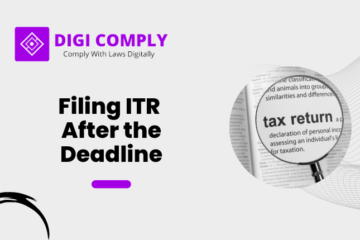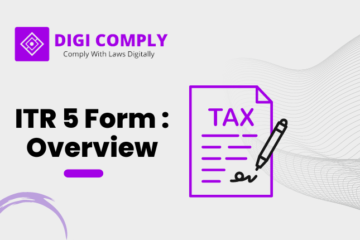With the arrival of the Assessment Year 2022-23, there has been a noteworthy and positive trend observed in the realm of tax compliance, as the Income Tax Department’s data reveals an increase in early tax return filings. This surge in proactive taxpayers demonstrates a growing sense of responsibility and commitment towards fulfilling their tax obligations promptly and accurately.
However, amidst this encouraging trend, it is crucial to acknowledge that some individuals may still encounter certain challenges during the tax filing process, resulting in errors or inaccuracies in their returns. These errors can range from simple mistakes in filling out forms to more complex issues related to the reporting of income sources and foreign assets. Moreover, such errors can lead to defective returns or, in more unfortunate cases, delays in receiving tax refunds.
To ensure a seamless and hassle-free income tax return (ITR) filing experience, taxpayers must be vigilant and mindful of specific crucial aspects. By following a set of essential guidelines, taxpayers can substantially reduce the chances of making errors and enhance the accuracy and efficiency of their tax return submissions.
First and foremost, the selection of the correct ITR form plays a pivotal role in the entire tax filing process.
It is imperative to consider factors such as residential status, income level, and the nature of income while choosing the appropriate form. Filing the return in the wrong form can render it invalid, which underscores the significance of accuracy in form selection.
Furthermore, taxpayers should diligently review the Annual Information Statement (AIS) and Form 26AS.
These documents provide vital information regarding various income sources, deductions, and taxes paid. Careful scrutiny of these statements will help ensure that all income sources are accurately reported in the ITR. If any discrepancies are identified, taxpayers should not hesitate to provide feedback through the designated portal and promptly notify deductors to rectify any errors.
For individuals engaged in share dealings, it is essential to include dividend income credited to their bank accounts during the tax return filing
Accurate bank details are crucial to facilitate seamless transactions, and taxpayers must also report any capital gains losses to offset gains in future years. Even in situations where an individual’s income falls below the taxable limit, but Tax Deducted at Source (TDS) has been deducted, filing a tax return remains necessary to claim a refund.
When providing personal information, taxpayers should exercise utmost diligence in quoting their Aadhar and correspondence details
Ensuring accuracy while providing bank account numbers and IFSC codes is of utmost importance, as inaccuracies in these details can lead to unnecessary delays in receiving tax refunds.
Moreover, full disclosure of all income sources, irrespective of their taxable or exempt nature, is an obligatory requirement during tax return filing.
This adherence to transparency ensures that all sources of income are accounted for, and the taxpayer remains compliant with the tax laws. Additionally, for residents and ordinary residents, disclosing all foreign assets and income earned from abroad is a crucial aspect of tax compliance.
Pre-validation of bank accounts is another essential step that taxpayers must undertake to ensure smooth and timely receipt of Income Tax refunds
This proactive measure streamlines the refund process and minimizes any potential delays in receiving the rightful refund amount.
Filing an error-free ITR demands meticulous attention to detail
Taxpayers should be diligent in providing accurate personal information, correctly reporting all income sources, and claiming eligible deductions with supporting documents. Selecting the right ITR form, cross-verifying TDS details, maintaining records of tax payments, and conducting a thorough review of all details for accuracy are additional measures that can significantly contribute to a seamless tax return filing experience.
Adhering to the specified deadlines for filing the ITR is of utmost importance
This ensures that taxpayers avoid unnecessary penalties and stay compliant with the tax regulations. Additionally, prompt e-verification of the ITR within 30 days from the date of filing is crucial to validate the return’s authenticity. Early filing of tax returns can help prevent a last-minute rush and ensure a smooth refund process for taxpayers.
The Income Tax Department acknowledges and appreciates the responsible efforts made by diligent taxpayers in fulfilling their tax obligations. By following these key tips and guidelines, taxpayers can maximize their chances of filing accurate returns, minimize the possibility of receiving notices, and avoid delays in receiving their rightful tax refunds. This harmonious collaboration between taxpayers and the tax authorities fosters a more efficient and effective tax ecosystem, promoting transparency, compliance, and the overall economic growth of the nation.
If You have any queries then connect with us at support@legalsuvidha.com or info@digicomply.in & contact us & stay updated with our latest blogs & articles





